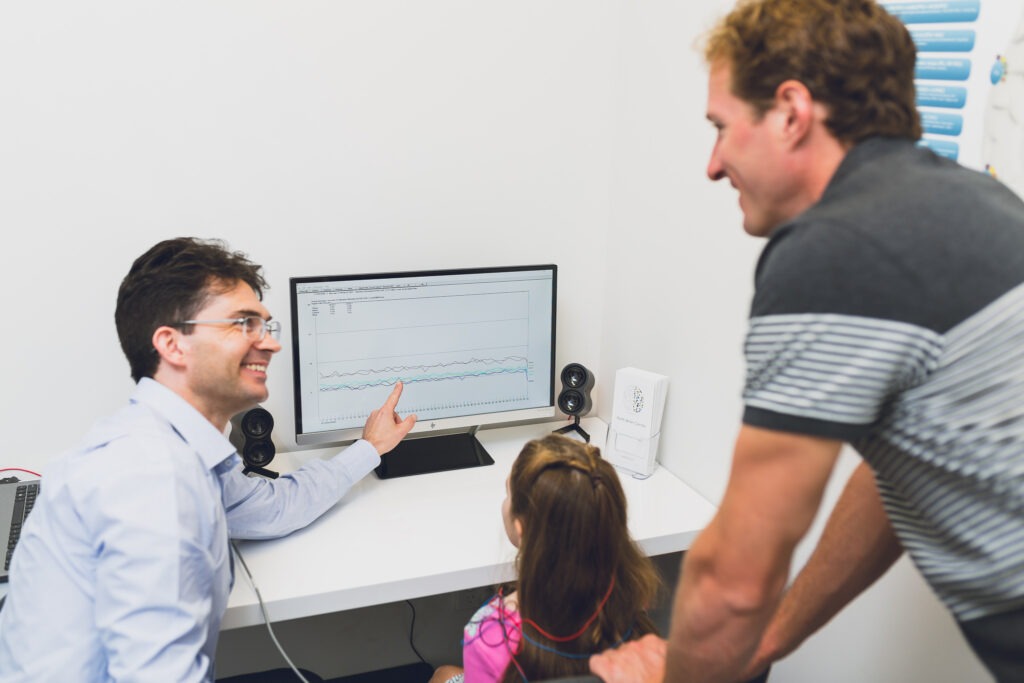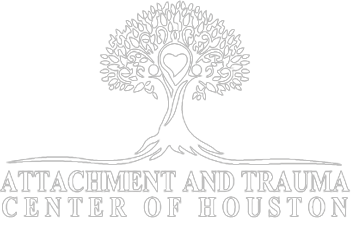LENS Neurofeedback
What is LENS Neurofeedback?
Neurofeedback is direct training typically provided by health professionals such as psychologists, family therapists, and counselors. We observe the brain in action from moment to moment and that information is brought back to the person by way of the sensors.
Neurofeedback is also called EEG Biofeedback, because it is based on electrical brain activity, the electroencephalogram, or EEG. Neurofeedback is training in self-regulation. Self-regulation is a necessary part of optimal brain performance and function. Self-regulation training allows the nervous system to function better.
The LENS is a specific kind of Neurofeedback that operates much more rapidly than traditional Neurofeedback and has qualities that make it much easier to use with people who can’t sit still. With the LENS, the client doesn’t need to “do” anything, and there is nothing to learn. The typical session with the LENS lasts 3-4 minutes. This means that the LENS works well for people who either cannot or will not pay attention to a computer screen for longer time periods.
Additionally, the LENS works much faster than traditional Neurofeedback with the number of sessions ranging from as few as 1 to an overall average number of sessions of 20.


How can LENS Neurofeedback help?
The LENS, or Low Energy Neurofeedback System, is a unique and effective form of neurotherapy that facilitates changes in people of all ages with a wide variety of presenting issues. As a result, it has the capacity to address numerous symptoms and deficits. It is remarkably effective, and over 85% of people who have used the LENS have benefitted significantly from it. Results can be seen quickly, often beginning within the first session, and are lasting. It may be utilized as the primary treatment approach, or as an adjunct to other therapies. Patients across the lifespan, from young children to older adults, have benefited from LENS.
The LENS works well with problems of the Central Nervous System, which can be numerous. These include symptoms of anxiety-depression spectrum, attention deficits, behavior disorders, various sleep disorders, headaches and migraines, PMS and emotional disturbances. It is also useful for organic brain conditions such as seizures, the autism spectrum, and cerebral palsy. These are all signs of Central Nervous System dysfunction which result in the body’s difficulty regulating itself.
FAQs
Cognition – Problems sequencing, memory, providing and maintaining attention, concentration, clarity and organization.
Mood – Anger, sadness, explosiveness.
Motor – Lack of grace, problems of eye-hand coordination, balance, increased muscle tone (from spasticity) and tremor.
Motivation – Problems initiating tasks, shifting from one activity to another, and/or completing tasks.
Anxiety – Problems of anxiety system activity (too much uncomfortably-contained energy), persistent “anxiety”, restlessness, rumination, agitation, distractibility, difficulty breathing, palpitations, tremor exacerbation, and sleep interruption.
Reactivity – Hyper-reactivity, hypersensitivity, multiple chemical sensitivities.
Pain – Brain-generated pain (mismapping the origins and qualities of signals), and vascular pain.
Addictions/Dependencies – Lack of clarity about emotions and self-comforting, defensiveness, argumentativeness and cynicism.
Fatigue – Fatigue; or fatigue as a phenomenon secondary to the effort of trying to overcome the pain and/or the above impediment to functioning more easily.
Performance Optimization – Increases in functioning in the above areas in absence of any diagnosis.
The LENS works well with symptoms of Central Nervous Symptom dysfunction. These include symptoms of ADD, ADHD, Seizures and sub-clinical seizure activity, severely disruptive behavior disorders such as Conduct Disorder, Reactive Attachment and Bipolar Disorder, Autistic spectrum and pervasive developmental delay, Cerebral palsy, concussive injuries, PTSD, Acquired Brain Injury, and Birth Trauma.
The LENS works extremely well with the symptoms of Traumatic Brain Injury, no matter how long ago the incident occurred. The trauma can be from a physical blow, a concussive injury, a psychological incident (PTSD), or any other incident(s) which results in a decrease in cognitive ability. Many children have sleep problems that can be helped such as bed wetting, sleep walking, sleep talking, teeth grinding, nightmares, and night terrors. The LENS can also be helpful with many of the symptoms of adolescence including drug abuse, suicidal behavior, anxiety and depression. The LENS can also help in maintaining good brain function as people age.
If the problem being addressed is one of brain dysregulation, then the answer is yes, and that covers a lot of ground. Neurofeedback involves learning by the brain and if that brings order out of disorder, the brain will continue to use its new capabilities, and thus reinforce them.
At times there are unknown issues such as early-stage degenerative disease, allergies, strong reactions to some foods or pollens, or spills and falls leading to bumps on the head. In these instances longer courses of the LENS may be needed. And it may also be that some direct medical help may be the best course of action. The LENS can’t do everything for everybody. But it can and has made a difference that other approaches have not provided, and in general, in a much shorter time. Matters are different when we are dealing with degenerative conditions like Parkinson’s or the dementias, or when we are working against continuing insults to the system, as may be the case in the autism spectrum. In such cases, the LENS sessions may need to be continued at some level over time. Allergic susceptibilities and food intolerances may make it more difficult to maintain the gains. Poor digestive function will pose a problem, as does poor nutrition. A child living in a toxic environment (in either the physical or the psychological sense) may have more difficulty retaining good function.
In the case of organic brain disorders, it can only be a matter of getting the brain to function better rather than of curing the condition. When it comes to problems of dysregulation, we would say that there is not a disease to be cured. Where dysregulation is the problem, self-regulation may very well be the remedy. But again, the word cure would not apply.

